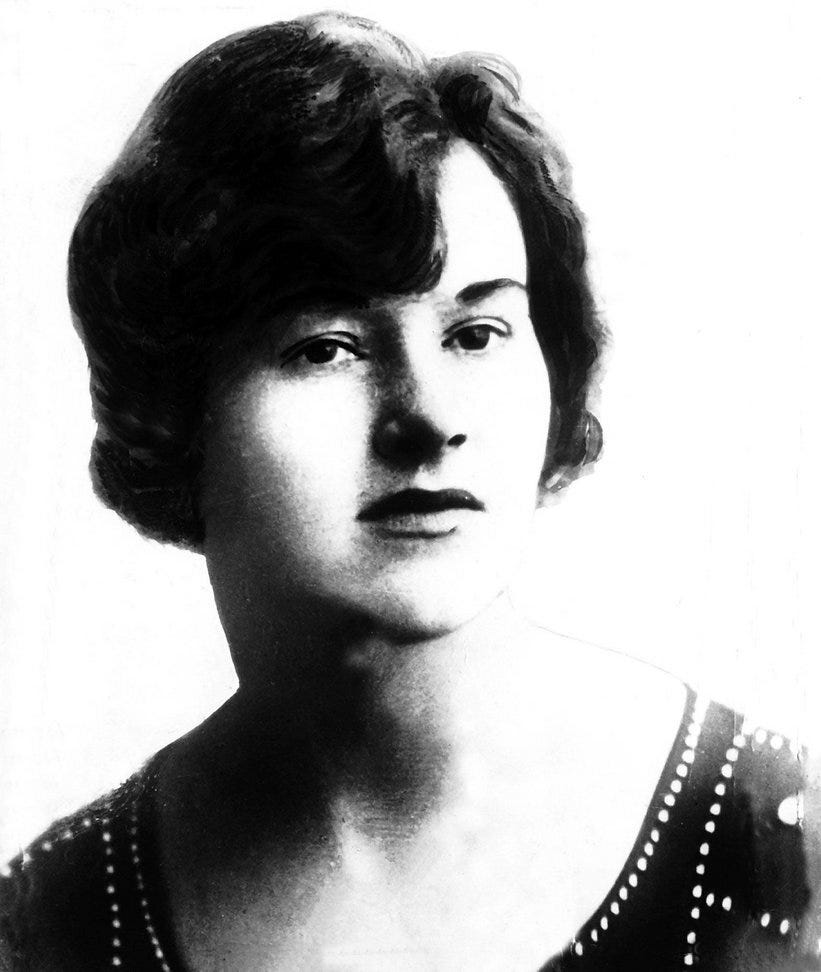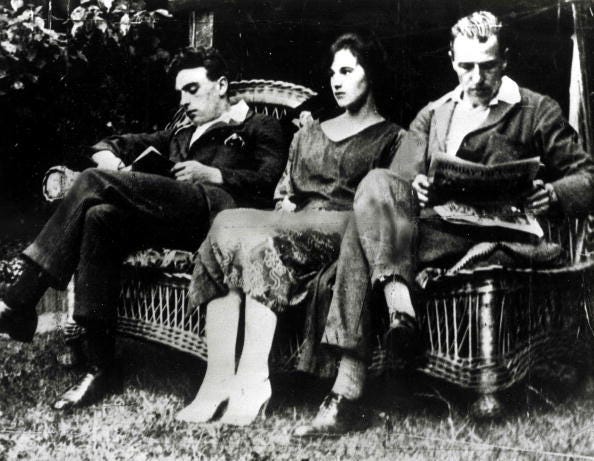Misogyny and Capital Punishment: The Ultimate Cancellation
Laura Thompson on how British cultural prejudice condemned a woman to death
The figure of Lady Justice wears a blindfold, as a signifier that the law judges all people alike – a reassuring concept in which it is well-nigh impossible to trust. The belief in the need for impartiality is surely sincere. But prejudice, with its shape-shifting nature, is not always easy to perceive – or resist – at the time. Only after the event does it reveal its presence, so powerful as to create a form of blindness.
Take, for instance, the stories of two young women, implicated in famous murder cases of the early twentieth century. In 1910, the 27-year-old Ethel le Neve was tried alongside her lover, 48-year-old Dr Crippen: he was accused of poisoning his wife and Ethel of being an accessory. She had paraded about in the victim’s jewels and absconded on a ship with Crippen disguised as his son. Nevertheless, she was acquitted. Her pale and trembling demeanour convinced the Old Bailey – and public opinion – that she was a helpless innocent, wholly ignorant of her lover’s murderous antics.
Twelve years later, 28-year-old Edith Thompson would provoke a very different reaction when she, too, was tried with her lover, for the murder of her husband. Percy Thompson was fatally stabbed in October 1922, as he and Edith walked to their Ilford home after an evening at the theatre. His killer, Freddy Bywaters, was a merchant seaman aged just twenty.
Because of this age difference – which in some quarters would still seem ‘the wrong way round’ – there was an instant presumption that a callow youth had acted under the guidance of his seductive cougar mistress. The implication was there in the first newspaper reports, which of course had been guided by Met detectives, who took against Edith from the start. And when love letters, discovered in Freddy’s ship cabin, were found to contain passages expressing an urgent desire for Percy Thompson’s death, the preordained narrative was apparently – and triumphantly – proved.
Edith Thompson’s problem was that she aroused prejudice, as Ethel le Neve did not. In the Britain of 1922, reeling from war and longing to return to pre-suffragette certainties, she symbolised a present that was resented and a future that was feared. She touched all the wrong nerves. She was sexy, aspirational, frankly too much for the narrow world of lower-middle-class East London into which she was born; but it was near-impossible, a century ago, to vault the twin towers of class and gender that stood guard upon her short life.
Nevertheless, refusing to know her place, she rose within her managerial job to out-earn her husband and part-own their smart suburban villa. Instead of raising a family, she kept working; instead of being a contented wife, she had an affair with a handsome virile boy; all this played extraordinarily badly when she was faced with the judgment, not just of the law, but of the press – and public opinion.
Most damning of all were her letters to Freddy, which were instinctively sensual, and thus deemed so degraded that it was easy to see in them an incitement to murder. ‘It makes one feel that we are going rotten at the bottom as well as at the top, and that the paganising process of moral decadence has gone further and deeper than we had suspected,’ wrote the editor of the Sunday Express, giving his readers exactly what they wanted to hear.
I could say that Edith suffered on account of misogyny, which would be true – the majority of men were simply not ready for this kind of woman – but the uncomfortable truth is that her own sex were still more vehement in their condemnation. Their sympathy was rarely with Edith (whom the novelist Rebecca West described as ‘a shocking little piece of rubbish’), and far more with the young man whom she had supposedly dragged down to the gutter.
That, then, was the starting point of Edith Thompson’s trial. Prejudice – pre-judging in advance of the real thing – had stoked a burning, delicious urge to condemn.
And the appalling, terrifying thing – because who might not find themselves faced with prejudice? – is that there was no case against her. Her behaviour after the killing evinced absolute innocence; witnesses testified to her extreme shock and distress. Her letters do indeed make reference to her husband’s obliteration, but by means of poison or glass in his food, an entirely different scenario from the one that killed him. Moreover, Percy Thompson’s exhumed body showed no trace of any nefarious substance.
The only evidence, therefore, was Edith’s own words, which the exhumation had shown to be born of imagination rather than fact. This was completely ignored. Instead, a century before ‘cancellation’ became a cultural phenomenon, this woman was cancelled for things that she had written. To be precise: she was cancelled not for her words, but for the literal interpretation that the law placed upon them, in accordance with what it already believed them to mean. Percy Thompson was dead, his wife had written that she longed for him to be, therefore she was guilty of his death.
And cancellation, in this case, was total. Edith Thompson was hanged for a murder that she did not commit on 9 January 1923, at Holloway, a couple of miles from where Freddy Bywaters – who in truth was far from callow, and who took full courageous responsibility for the killing – was simultaneously executed at Pentonville.
To mark the centenary of these events, I have collected and edited Edith’s letters for publication. Aside from their forensic interest, they are remarkable and often beautiful; an amazingly vivid record of an Everywoman who suffered an outlandish fate, and whose singular voice sounds clearly across the years. The creation of these letters was the defining act of Edith’s life. I have always thought that the main point about Freddy was that he was hardly ever there, and therefore became the vessel into which she poured all her numinous longings; the wicked irony is that, by seeking to write her own story, she ensured its premature ending.
She was, in my view, guilty of something, a nuanced crime that had nothing to do with the Old Bailey: the wilful refusal to accept that words have consequences, especially when their reader is a fiery young man whose masculinity she persistently challenged. But to condemn a person on account of how their words might have been interpreted is a grotesque act, the stuff of dystopia. What happened to Edith Thompson is a scar upon the nation. There is currently a campaign for a posthumous pardon, which is, in one sense, an irrelevance – what’s done is done – but it matters, all the same: it says that a fair trial, without prejudice, is eternally our right.
Au Revoir Now Darlint - The Letters of Edith Thompson, Edited by Laura Thompson, is published by Unbound




This is riveting!